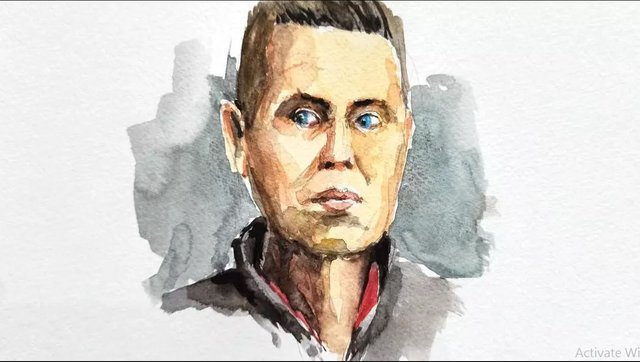FRANCESE Frenchman sentenced to 25 years for killing wife burning her body

A French court Saturday sentenced Jonathann Daval to 25 years in prison for killing his wife and then burning her body, in a case that shocked the country.
The 36-year-old Frenchman was impassive as the verdict was read out. He turned to look at members of his own family who were present.
Earlier, he had said "Sorry, Sorry" in the dock, looking towards his wife's parents.
Daval finally confessed to beating his wife to death and burning her body in the woods after initially reporting her missing.
The charred remains of Alexia Daval were found hidden under branches near their town of Gray-la-Ville in eastern France in October 2017.
Daval initially said Alexia, a 29-year-old bank employee, had gone jogging and never came back.
Jean-Pierre Fouillot, Alexia's father, passed an arm around the shoulders of his wife Isabelle as the court's decision was delivered.
A few minutes later the mother, Isabelle Fouillot, went out to talk to reporters, as she had done throughout the trial.
"It is a very good decision, exactly what I hoped, at the height of our suffering. That will allow us to turn a page," she said.
'Almost perfect conjugal crime'
Defence lawyer Ornella Spatafora swiftly indicated that there would be no appeal against the sentence.
Outside the courthouse dozens of people were pressed against the barriers blocking access to it.
Prosecutors had asked for a life sentence calling the 2017 murder "an almost perfect conjugal crime."
After his wife's death, Duval had cut a distraught figure, appearing in tears at a press conference with his in-laws and leading one of several events organised countrywide in her memory.
Three months later, prosecutors said the IT worker confessed to the murder -- admitting he had beaten his wife in a heated argument, knocking her face against a concrete wall, and strangling her.
He initially denied setting fire to her body, but finally admitted to that too, in June last year.
site:https://www.peeranswer.com/question/5fba7b725e14b08f6e3c3301
Daval changed his story several times, at one point withdrawing his confession, blaming his brother-in-law, and finally admitting to everything all over again.
site:https://onlinegdb.com/S1ob6xuqv
On Monday, when asked by the judge whether he admitted to "being the only person implicated in the death" of his wife, Daval replied "yes", appearing close to tears.
site:https://paiza.io/projects/MLAMTovSDY2N-nqBXL3vHA?language=php
The crime deeply shocked France, and nearly 10,000 people turned out in the couple's quiet town for a silent march in her memory.
The murder highlighted the scourge of violence against women at the height of the global #MeToo campaign against sexual abuse and harassment of women.
site:https://paste.ee/p/EQVpS#5NCMIQeqxlk5G7w9OGfVkUNMbZkcIoPi
On Monday, French authorities said 125,840 women were victims of domestic violence in 2019. Another 146 were murdered by their partner or ex-partner -- 25 more than the previous year.
https://pasteio.com/xz2KXFYhQb4M
Activists have alleged that police brutality was responsible for the killing of Adama Traoré, a Frenchman of Malian origin who died after his arrest in the Paris suburbs in 2016. An autopsy commissioned by his family said that he died of asphyxiation. The official health report said he died of heart failure, clearing three police officers of responsibility in June.
Several instances of alleged police violence were revealed by videos broadcast on social media. Cédric Chouviat, a delivery driver in Paris, suffered a heart attack and died in January after police put him in a chokehold. Several Yellow Vest protesters were bludgeoned inside a Burger King in Paris in December 2018. Images of both incidents originally surfaced on social media, prompting public outrage.
‘A freedom-killing law’?
Anne-Sophie Simpère, an activist for Amnesty International France, said the amendment is not enough and that the government should withdraw Article 24 in its totality.
“It is a freedom-killing law that would threaten freedom of expression, the right to demonstrate and the right to privacy,” she said.
France’s official rights ombudsman, Claire Hédon, also said Article 24 should be withdrawn, describing it as “unnecessary”. She added that several other clauses in the text were “likely to contravene human rights”, including the right to privacy.
Article 22 of the security bill would allow police greater latitude in the use of surveillance drones. Simpère said drones could now be used in more circumstances that are not subject to regulation. The development of facial recognition technology “raises further concerns”, she said, adding that drones should only be used “if there is a legitimate need and a clear objective”.
Amendments to ban the use of facial recognition technology in drones were rejected on Friday morning.
Addressing parliament, Thourot pointed out that there is currently no “legal framework” regulating the use of drones. Article 22 will allow them to be used only by security forces for purposes including the “prevention of terrorist acts”, she said.
Another clause in the security bill would give local police new powers, including the ability to record minor offences such as traffic violations and to carry out identity checks. Currently, only the national police has these powers.
The security bill would also reform regulations of the private security sector, notably ahead of the 2023 Rugby World Cup in France and the 2024 Paris Olympic Games. In particular, it aims to “drastically reduce” the number of subcontractors in the industry to tackle what Thourot has called the “Uberisation” of the industry. The legislation would encourage the employment of retired police officers by allowing them to combine their pensions with pay from security work.